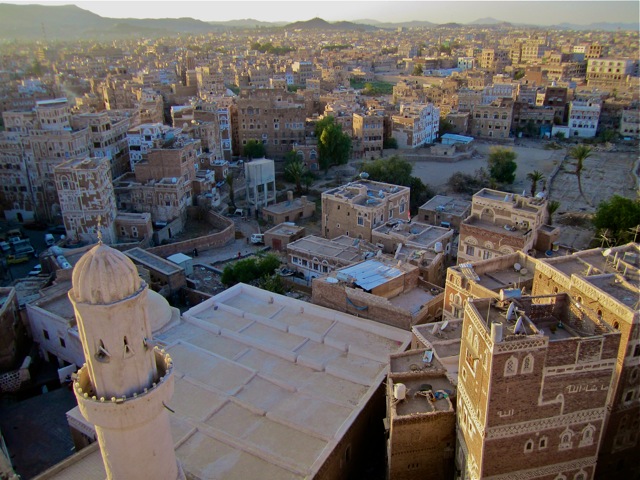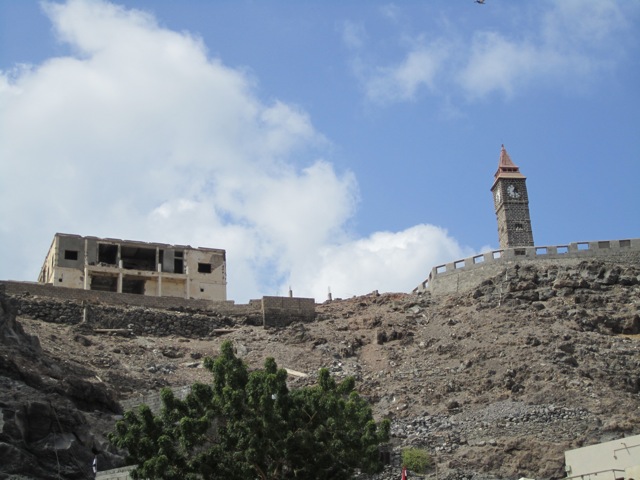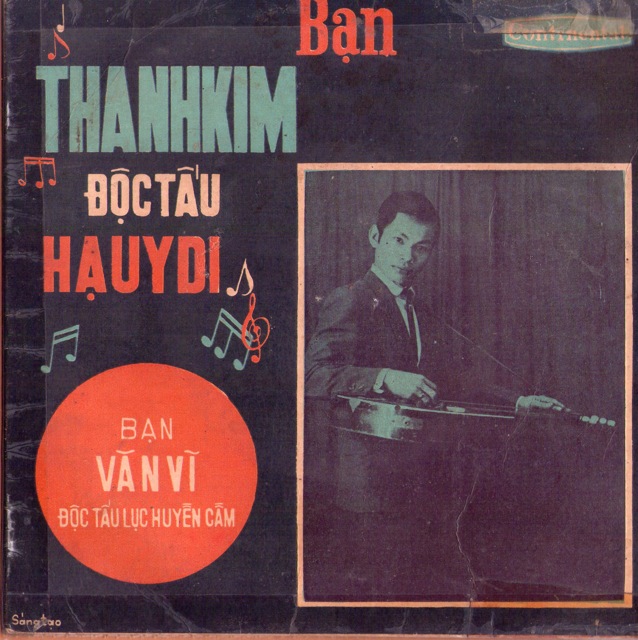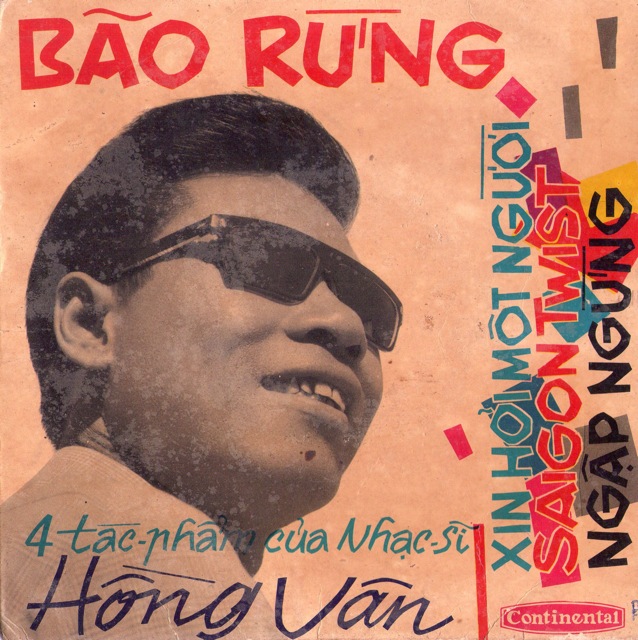Archive for January 2011
False Starts And Full Circles

My second trip to Yemen draws to a close. It’s been a little briefer this time, but it was good to experience a taste of life outside Sana’a, as well as track down some more vinyl gems. I had seen Adebe again – sadly, things seemed as uncertain as ever with regards to his return to Ethiopia. He seemed in an almost impossible position, and eventually he knew the only way of ascertaining for sure whether he was off the black list was to roll the dice and return. It was just a matter of when, even though the risk could never be completely eradicated.
One afternoon, driving back from the Old City, I decided to try the number of another man I’d been put in touch with after that first visit to the Ethiopian community centre. I had been set to meet him on my last visit, but he’d suffered what sounded like a fairly serious bout of food poisoning, which had landed him in hospital. He was now back in his shop, the promising sounding ‘Abyssinian Music Store’, and so we arranged to meet. He had a gregarious manner, and the slight air of a Dickensian rogue. Friendly as he was, I opted to take what he said with a pinch of salt.
He told me how he’d had some ‘shekla’ but it had all been broken. To prove his point he went to a back room and came out with a pile of Romanian folk records that looked like the victims of a vinyl vendetta! Not merely broken, but seemingly cut into pieces with a sharp blade, and scuffed beyond recognition. Who knows how they’d ended up in this state – he certainly offered no explanation. Still, he said he had some others at home, which he could let me see, and that he’d call me to arrange a time. All this seemed somewhat unlikely, and I decided that if I ended up with anything, it’d be a bonus.
To my surprise, his assistant Ahmed called me a couple of days later, saying they had some music that might be of interest. Hoping for a nice little pile of Ethiopian gems, I was sorely disappointed to be greeted by a selection of water damaged trash. Boney M, Abba, bad classical, and some more of that mysterious Romanian vinyl. Most things were in their wrong sleeves and almost all in abysmal condition. It was like record collecting purgatory.
I politely explained again what I was after. Ahmed seemed a little sheepish and said he’d let me know. A couple of other leads were offered, but these too came to nothing. I figured for Ethiopian music there no more nooks or crannies to search in.
I had one final nice afternoon with Salim, a pleasant stroll through the Old City, picking up some gifts for friends and family. It seemed that the search for Yemeni vinyl was also at an end. A couple of other sellers had come up with interesting selections, but the condition or price hadn’t made it worth it. The funniest of these was a notorious Jambiya (traditional curved knife) seller. He was from a well known family, and was also somewhat of a ‘fixer’ in the market place. When me and Salim went to visit him a couple of days earlier, he was sat at his shop, smoking, mobile phone in the other hand, receiving a series of petitioners who were asking him to solve their disputes. I was ushered into his store, and nervously sat next to him. He was imposing, and would fix me with a penetrating gaze from time to time, particularly when he was trying to emphasise a point.
His speciality was rhino horn handle Jambiyas, some of them over 400 years old – serious status symbol material! He kept on saying things like ‘I only let you hear these, because Salim ask’ and ‘Ah yes, the price is no problem just ask what you want. Relationship is relationship and business is business!’ In my mind, this frankly didn’t bode well.
The records were indeed excellent, though quite scuffed. Some had apparently been given to him by the singers themselves. I finished the pile and after some more small talk asked about the price. A lengthy, abstract conversation then took place between him and Salim. I looked up at the walls of the shop, covered by dozens of those expensive knives.
Eventually, the opening price was $50 per record. This was outrageous, especially considering the condition. We talked some more, and he said he’d normally charge $100, but was offering this discount because of Salim! I decided that negotiation was pointless, and that I’d get no where near the price I wanted. I thanked him for his time, and said I’d consider his kind offer. I was happy to leave the slightly charged atmosphere. My main concern was that Salim wouldn’t be put under some sort of obligation later, but he seemed unconcerned. This was in stark contrast to the relaxed experiences sifting through records elsewhere in the Old City. I think, at the end of day, he didn’t really want to sell his memorabilia. But it was a nice opportunity, I suppose, for a grandiose charade.

To conclude my time here, I decide to revisit chewing qat. I had tried some back in November, and had not been impressed. It’s bitter, numbing taste had made me want to retch after a while, and I had quickly swilled my mouth out and spat the caustic green mulch into the sink. There were two reasons I had decided to retry this experience. One, I wanted Salim to pick the qat for me – I hadn’t been convinced of the quality of the first batch and felt a local eye for the leaf would at least allow an objective assessment.
Secondly, it is because it is simply everywhere in this country. It determines the rhythm of the day, and seems to be the apex of an afternoon’s activity. A few days before I had gone to cash a cheque in the middle of the day, only to be told that the bank would reopen at 4pm, after everyone had gone out to buy their daily qat. Sure enough, when I returned most workers were sat behind their desks, idly chewing, sometimes furtively reaching for more leaves out of plastic bags. The fact that this seems so normal now is in a way what briefly shook me from my passive acceptance of this sight.
The only equivalent I could think of, would be people taking a break in the afternoon to go to the off license to refill their hip flask, which they’d then gently sip on for the rest of the afternoon. What was it about qat that so captures the local imagination, here, as well as in Ethiopia, Somalia and elsewhere on the East African coast?
I charge Salim with picking up a small bag for me from the market which he duly did after which I head for home. It should be said that qat is almost inherently a social ritual. People will chat and chew for hours with friends and family. It is an arbiter of disputes, and a settler of discussions. It is also, shockingly, a consumer of 80% of the country’s water, in a place where water is increasingly scarce. It potentially sows Yemen’s own self destruction, and in reality, in terms of the real cost, it would probably be cheaper to import than continue to grow here. In the surrounding fields of one of Yemen’s landmarks, Dara Haga, (the old king’s palace built astonishingly on top of a large rock), what had once been the preserve of fruit and vegetable plots, was now replaced entirely by qat trees.

After the first twenty minutes of chewing, I started to relax, and felt woozily mellow. I was in addition listening to some of the records I’d purchased, to see if the music would help me penetrate further into the national psyche. The leaves were certainly more pleasant this time round, though there was still a slightly cloying taste about it. After a bit longer, the mellowness shifted to some sort of clarity. I felt content – the music played, and I was happy to sit reading and pondering.
I friend of mine recently went to ‘a chew’, and found a recurring pain in her left shoulder had dissipated. A fellow female chewer said she used qat to counter the effect of period pains.
After another 20 mins, I suddenly felt sharp and alert. My mind raced briefly. A couple of worries from earlier in the day suddenly seemed irrelevant, or at least not worthy of current concern or consideration.
I thought back to my trip to Aden, and, whilst passing a row of run down shacks on the walk to Seera castle, I saw young boys of Somali or Ethiopian descent chewing with their families, waving lazily as I walked past. I wondered then if qat didn’t provide some sort of self medication against the harsh realities outside. It certainly seemed more symptom, than cause.
After a bit longer, I stopped and sat back, feeling at ease and relaxed. The music hadn’t sounded different during my chew, but certainly provided conducive company. A bit later, as I felt the cocoon lift, I felt a slight sadness as one does at the conclusion of a nice day out. An acknowledgement of a good experience, but a realisation that the activity concerned, with it’s adjacent endorphins, must now pass into memory.
Even as a brief recreation I could see it’s merits. As a way to bypass day to day troubles, it isn’t such a surprise that this mild amphetamine claims dominance as a respite from the day to day.
But it’s also true that it proves detrimental to a place with limited environmental resources, poor economic access and slender choices for the current generation. The lack of governmental will to provide alternatives is stark, and, what the future holds for Yemen is frankly unclear.
Some predict not the apocalypse provided from the local Al-Qaeda branch (AQAP), currently the source of so much of Yemen’s international attention, but eventually a complete absence of economically viable water sources, as well as the depletion of the country’s small oil reserves. This, apparently, could be imminent within the next five years.
If that happens, I wonder what the international response would be then? The Saudis would probably all but seal the border. AQAP would eventually shift their base of operations, after which the US and the UK would no longer be so anxious at what happens inside this already fractured country. Would we then all sit back and watch one of the oldest human settlments slowly grind to a halt, and become uninhabitable again as it perhaps was in pre-history?
Whatever the conclusion, qat will of course continue to grow, be sold and chewed day after day. It’s a far more lucrative crop than other foodstuffs. It’s also a social panacea that briefly makes the day go by and keeps troubles at bay, at least until tomorrow.

You Can’t Always Get What You Want…Pt2

Aden ranks as one of the strangest places I’ve been to in some time, and took me by surprise at almost every turn. Firstly it’s the landscape. The main part of Aden is called Crater, so called as it’s literally built on the crater of a long dormant volcano. Looming high above the city are great spools of volcanic rock, lending the place a yen of otherworldliness, almost as if one might be on a different planet. Legend goes that Cane and Abel actually founded the settlement originally. Either way it’s natural harbor has made it a desirable acquirement for several rulers across the centuries, be it various Yemeni Sheikhs, the Portuguese, the Ottoman Empire and then finally the British until their exit in 1967. Maybe it’s the weight of history that gives the place its slightly curious air.

Seaside or seaport towns, for me, always seem to have a somewhat melancholy atmosphere because of their enforced state of flux. People always seem to be preparing to leave or waiting for something to come in on the ocean tide. And Aden certainly felt no different. In fact, another thing that gave it it’s peculiar edge is that in many ways here was a town which you might find almost anywhere in the Middle East, but somehow squeezed into the decaying infrastructure of the last serious vestige of the British Empire.
Clearly at its height, it must have been a bustling place, with a thriving international community engaged in the ebb and flow of trade. Rimbaud had stayed here during one of his forays, and the comedian Eddie Izzard had also been born here. In 1954 Queen Elizabeth had stayed in the grand looking Crescent Hotel, that sits just across the square from Queen Victoria Garden. A grim statue of the plump monarch still sits in the now chained up park surrounded by plastic palm trees. The Crescent lies empty and now seems to be part of a military area. A soldier brandishing a gun made it clear that photos were not welcome. It’s a place that can only seem to dream of the echoes of its past. The old talk fondly of its previous glories. The young study and graduate, but can often find no work, opting instead to chew qat and play dominoes on the Corniche in the warm evening breeze.
After a non-descript breakfast, myself and friend and fellow traveller Vic, headed over to Al-Tawahi, the site of the old Steamer Point, where boats loaded up on coal, water and supplies en-route to India. As well as being an area of interest, according to the guide book, I had been tipped off that this might be a place to find records. We ended up at an antique store, full to the brim with artifacts from Aden’s past, presided over by a certain Mr. Al-Qubati and his sons. A couple of organs (The Roman Catholic Church round the corner appeared to have been bricked up long ago) projectors, typewriters, cameras, piles of sea shells, coins, stamps…all things that I suppose people traded in as they left. The few records he had weren’t in great shape, but were a curious collection of Cuban, Russian, Indian and Yemeni discs. He promised he could get some more for me tomorrow from a friend and after chatting with him and his son for a while, we continued on our amble round.

A mock ‘Big Ben’ was set up on a hill overlooking Tawahi. Cats squabbled in a trash can at its foot. A man with a large gun tucked into his belt greeted us we wandered around the quiet ‘Tourist Pier’. The only recommended bookshop was locked up and lifeless. Sensing that the slightly effusive guide book might be somewhat out of date, myself and Vic decide to go to the place, where, other visitors to Aden had warned us we would spend the bulk of our time – the old Sheraton, now known as the Gold Mohur.
Set next to a pleasant beach, and again, surrounded by that ever present volcanic rock, the hotel also felt somewhat at odds with its surroundings. But to our excitement, it served beer, a real rarity in Yemen, so we settled down to lunch and a couple of cold glasses of Heineken. I ventured out later for more record scouring, but came up with very little. My initial anticipation of finding a broader selection of Yemeni music than I had encountered in Sana’a appeared to have been misplaced.
The next day Vic and I decided to check out a couple more tourist highlights before going back to the shop in Tawahi. This entailed the famed ‘water tanks’, a form of ancient reservoir, apparently rediscovered in 1854 by a glorious sounding son of Empire, named Lieutenant (later Sir Lambert) Playfair. We also made our way to Seera Castle, which boasted a great view over the Gulf of Aden, as well as period graffiti carved into its stucco interior. One read ‘David Blake and Joan Rodie 11/6/62’. A more recent addition stated ‘Fuck Bush SHARON Terrorist’.

Prior to climbing up to the Castle, we went past the fish market which had just received an astonishing catch of various sharks. A young man dragged a bloodied shark corpse across the tarmac before hurling it into the back of a truck filled with ice. One of the fishermen, noticing our inquisitiveness, offered to pose with some of his haul, and sat astride one shark whilst cradling a recently deceased hammerhead, as one might a docile pet. He then demanded money and became increasingly agitated, so we offered a few hundred rial and left, before the commotion attracted too much attention.


Back at the shop, the man had been true to his word, and he produced a small box packed with 45s. To my slight disappointment there were almost all Indian, but I decided to go through them all anyway, out of politeness if nothing else. One of the first I dropped the needle on, quickly proved my initial reticence incorrect.
On the Soundway compilation ‘Sound of Siam’ we had included a great track called ‘Fai Yen’, which stylistically had more in common with Bollywood music, although it was sung in Thai, and was part of an old Thai movie soundtrack. To my amazement, this Indian 45, (also from a movie) appeared to be the original. It had exactly the same backing track, but with a different vocal take in Hindi over the top. This implied there must be some sort of trade connection between the Bombay/Bangkok movie industries in the 70s, which I would have to investigate further. Needless to say, it was odd to find this missing link in southern Yemen. I’ll post both versions when I get home.
In addition, there were some lovely ghazals, and a killer track by Asha Bhosle, so it was a nice little haul in the end. Mr Al-Qubati and his son were lovely, and even threw in a few more records for free. I left them sat outside their shop in the afternoon sun after bidding them farewell and thanking them for their help. The father seemed content to dwell on his memories, but I hope the younger sons can keep this fascinating shop going.
Whilst Aden was not really how I’d imagined, it begged the question as to what other idiosyncrasies and experiences might be had elsewhere in this unique country. Nothing is quite what you’d expect, and it seems cocooned in it’s own strange timelessness as the world continues to turn outside.

You Can’t Always Get What You Want…

It’s nice to be back in Sana’a again, although returning again to anywhere, you realize that the blank slate anticipation that accompanied you the first time has been replaced with expectation and a search for familiarity. I’m looking forward to seeing and experiencing certain things again, and am perhaps no longer as surprised by spectacles that caught my eye back in November. So, when I stepped outside of my front door and looked down the street to see a group of young men in red and white keffiyehs getting into an SUV, with AK-47s casually slung over their shoulders like shopping bags, I initially didn’t bat an eyelid. Something that might have caused alarm almost anywhere else (even Pakistan) didn’t at all seem out of place here. Chances are they were tribesmen, or the bodyguard detail for a wealthy local as opposed to militants, but still it’s surprising what you end up getting used to.
Needless to say, one of the things that I was certainly anticipating was the chance to rummage through the Old City to see if I could turn up any more vinyl gems, so I texted Salim the day after I landed. He called an hour later, welcoming me back to Sana’a and assuring me that some new stock had been turned up. It was nice to wander again through its narrow streets, dodging past jewelry hawkers, henna sellers sat crossed legged on the ground and the smells of incense, grilled meat and the sweet sting of qat. It was good also to see Salim and his crew, and after a round of handshakes, the search began.
The first shop turned out to be one I’d checked back in November, but for some reason never returned to. The owner dug out a small pile of 45s from inside a cupboard. Records are never on display here – they always seem to be dug out from a back room, from a small bag under a counter, or, in one instance, from a hole in the roof of the shop! There were a number of nice 7s in the proffered pile, the stand out being a vocal track, accompanied by a clanging, metallic rhythm beaten out on a copper tray, or sahn nuhasi, a tradition specific to Yemen. The unique percussion leant the track an otherworldly drone. I’ll post it up here when I return to Bangkok.
After a couple of other stores, we settled on what would be the final stop of the day. It all started promisingly enough. To mine and Salim’s surprise the owner pulled out a large box packed with 45s, all in brand new, unplayed condition. It turned out it was the old stock from a shop in Taiz, near the Red Sea port of Mocha.
Musically, I had picked better examples from other sellers, but the fact that they were in such pristine condition was unprecedented. All was going well until I’d made my selection and we started to discuss the cost. Citing a customer from Bahrain who had been happy to part with $30 USD per record, he wanted to know if I’d be willing to pay the same price. Naturally I said no, as this was much more than what I’d paid elsewhere – it seemed unreasonable. After some bargaining and a call to the boss, the best he could offer was $20. I purchased just one and left. It was all amicable enough, but just a tad awkward.
It seemed a shame to leave the rest, but I knew I wasn’t prepared to meet his price. Here was the most ridiculous of scenarios – a man with apparently over 1000 records, no means to play them, and an odd take on business acumen. He was like a character in a parable.
Maybe he’ll change his mind, maybe he won’t. Salim said he’d go back to speak to him again, as well as check a couple more contacts. He was annoyed at the exchange and apologized, but I tried to reassure him it was no big deal. It all goes into the pot of experiences, one way or the other. Off to Aden tomorrow – a port city for the Arab Peninsula and part of the old trade route for the British East India Company had to have something interesting stashed away in its awkward corners.
Forthcoming in 2011


Already, 2011 is getting impossibly busy, but in the best sense. Firstly, I’ll be going back Yemen in a couple of days. This time I fully intend to make my way down to Aden, to see what the southern Yemen might hold in terms of music. The ‘Sound of Siam’ Thai compilation on Soundway has been very well received and I’m also excited to see what people are going to make of ‘Thai?Dai!’ which is forthcoming on Finders Keepers. The latter focuses on the psych/rock side of things. You can get more info here:
http://www.finderskeepersrecords.com
http://www.soundwayrecords.com
After Yemen, myself and Maft Sai will be heading back to Japan in February for some more gigs to promote both compilations. Then there will be two new projects to work on, for the much lauded Dust To Digital label in the US. One will focus on Yemen, and the other on early Vietnamese blues and rock and roll. To give you a taste, there are two clips below.


In addition to these, there should be some Pakistani reissues due out on Finders Keepers, also. Watch this space. 2010 was an inspirational year for music – I’m hoping the same will be the case for 2011, and for all of you too. Will post another entry once I’ve dealt with my jet lag and altitude adjustments in Sana’a!